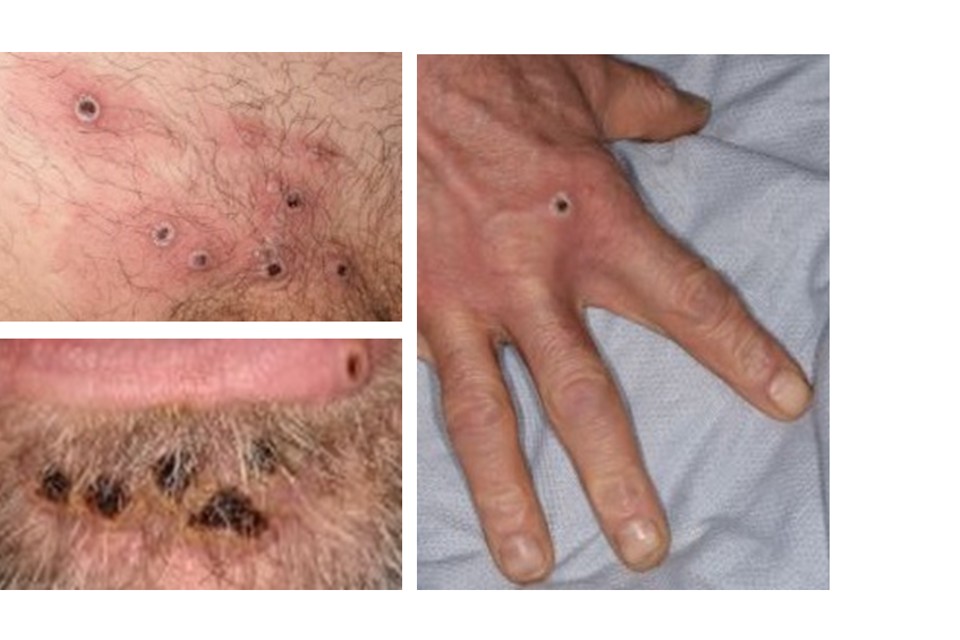Monkeypox is a rare disease belonging to the same family of viruses as smallpox.
Although typically found in central and western Africa, there are now reports of multiple monkeypox outbreaks across the UK.
While monkeypox is not very contagious and is less dangerous than other viruses, it is always important to be able to identify the signs of a disease and the risks it may pose to you.
Transmission of monkeypox
Monkeypox is a viral zoonosis, which means it is a type of virus transmissible to humans from animals. The first instance of the virus was identified in laboratory monkeys in 1958, hence the name monkeypox. However, it is thought that people catch the virus from infected wild animals, specifically rodents like rats and squirrels.
Between people, monkeypox is transmitted through bodily fluids, close contact with lesions (touching monkeypox blisters or scabs), respiratory droplets (if someone with the rash coughs or sneezes) and contaminated materials like clothing, bedding and towels.
Those living in the UK are unlikely to contract monkeypox, although certain people are more at risk.
If you have recently travelled to west or central Africa, where the disease is endemic, there is a higher chance you could get the virus.
Being in close contact, including sexual contact, with someone who has monkeypox or is symptomatic also puts you at a higher risk of getting monkeypox. Even touching another person’s skin or sharing their bedding counts as close contact.
While anyone can become infected with monkeypox, there have been a higher amount of cases in people who are gay or bisexual and in men who have sex with men.
Symptoms of monkeypox
Symptoms of monkeypox usually appear between 5 and 21 days after infection. These include:
- A high temperature
- A headache
- Muscle aches
- Backache
- Swollen glands
- Shivering
- Exhaustion
A rash will often develop between days 1 to 5. Beginning on the face, the rash can spread to other parts of the body, including the genitals.
Sometimes a monkeypox rash can look similar to chickenpox. The rash will typically look like raised spots to start with, which will turn into small blisters filled with fluid. Eventually, these blisters will form scabs and peel off.

What to do if you think you have monkeypox
The NHS recommends contacting a sexual health clinic if you have symptoms of monkeypox and have been in close contact with anyone who has or may have the virus in the past three weeks.
You should also contact a clinic if you have visited west or central Africa in the past three weeks and are exhibiting symptoms.
Find your nearest sexual health clinic here.
Ring ahead before visiting the clinic and explain your concerns. It is important that you stay at home and avoid close contact with others until you’ve been given further advice.
Treating monkeypox
In most cases, monkeypox is mild with most people usually recovering within a few weeks without the need for treatment.
As with other viral infections, those diagnosed with monkeypox should isolate themselves to help prevent the further spread of the disease.
A person with more severe symptoms, or a higher risk of developing serious secondary complications, may have to stay in a specialist hospital until they fully recover.
People may also be offered a vaccine to help fight off the virus. Previously, vaccination against smallpox has been found to be 85% effective in treating monkeypox.[1]
Who is at risk: monkeypox and diabetes
Although monkeypox is not usually fatal, with most people recovering within a few weeks of contracting the disease, it may be more severe in certain individuals, including children, pregnant women, or those considered immunosuppressed.
Having diabetes does mean you are considered immunosuppressed. However, those who do not have their condition under control can be more susceptible to infection as high blood sugar (also called hyperglycaemia) can negatively affect the body’s immune system. There are many ways you can take control of your blood sugar levels, such as eating a healthy diet and keeping fit






